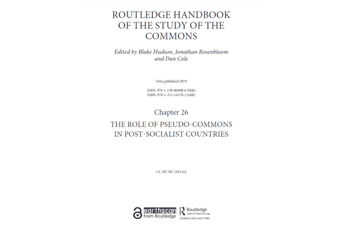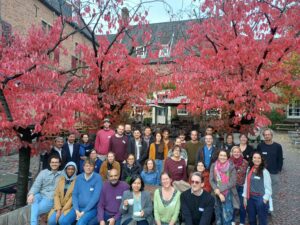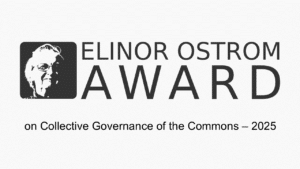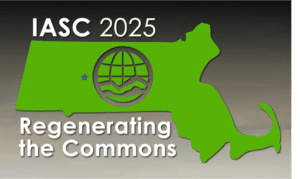Chapter 26. The Role of Pseudo-Commons in Post-Socialist Countries by Insa Theesfeld has now been made available Open Access, and the link to the chapter can be found on the books webpage here.
Summary of the Chapter:
In the 50 years since Garret Hardin published his “Tragedy of the Commons”, scholarship has revealed what Hardin did not recognize: that a wide range of shared agricultural resources can be sustainably managed through commons governance approaches. Yet, there are common-property regimes that only exist on paper, or set up intentionally to profit individuals. We find these pseudo-commons increasingly in post-socialist countries. Thus, I want to explore here what the particularities of natural resource management in the history of socialist countries are that paved the way for pseudo-implementation or pseudo-collective action property regimes in contemporary post-socialist countries. Moreover, what are the risks emerging from that for future commons? Insights from irrigation and forestry show that the socialist legacy and the prevailing Soviet mentality foster pseudo-commons, with the tragic result of reinforcing social inequality and destroying trust in a kind of governance proven to be helpful to rural development.









